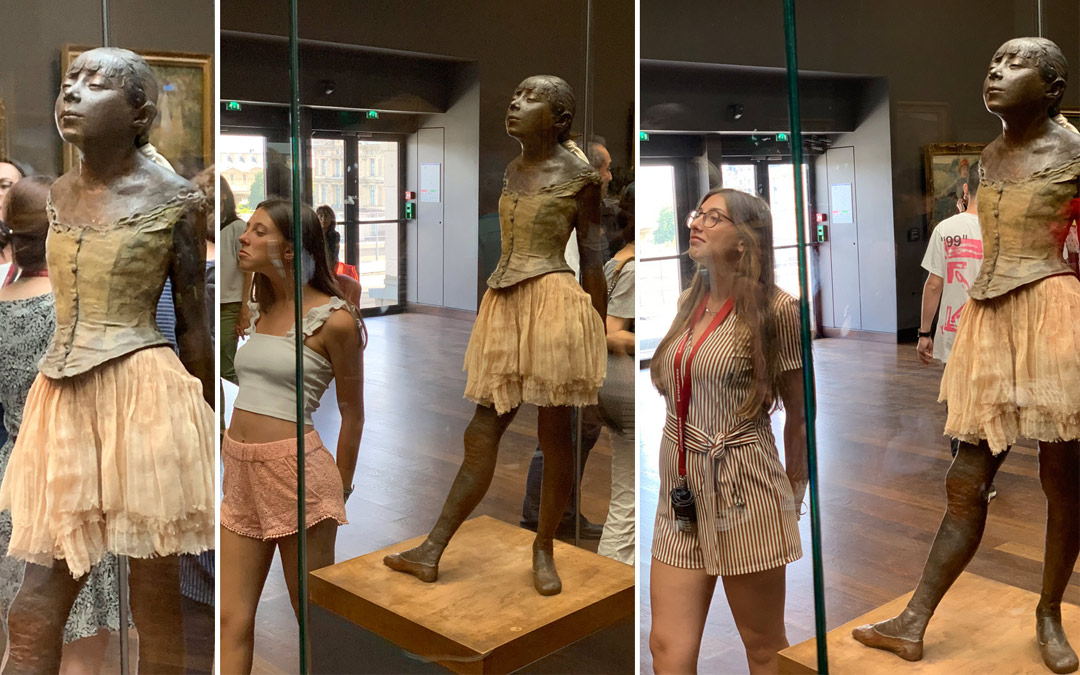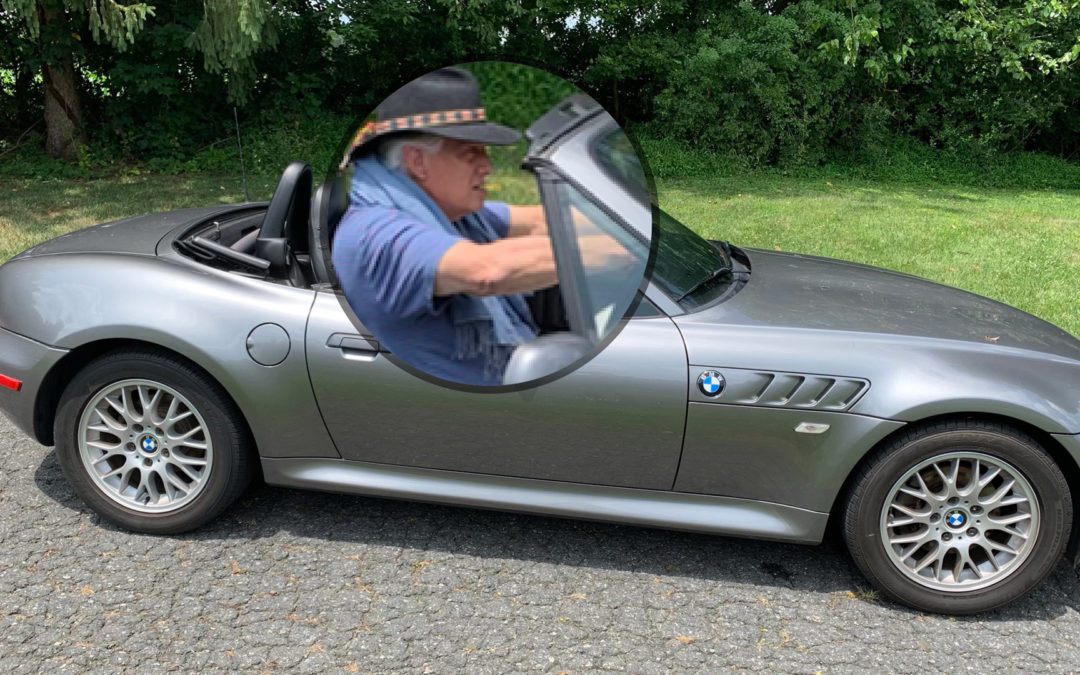
by Robert Bowie, Jr. | Oct 22, 2019 | Featured, Poetry
Working on the libretto for the operetta, Vox Populi, has brought me back to my love of poetry.
My favorite poems create a universe with a few words. Two good poems with a similar subject, put side by side, can introduce the creator of the other.
Like a painter organizes color and shape with his or her brushstrokes, the poet organizes a vision with the sound and rhythm of words:
“Whose woods these are I think I know./
His house is in the village though;/“
The brushstrokes? The sound and rhythm of these two lines? Speak them out loud. They are like the rocking of a hammock they are so smooth and quiet.
In complete contrast however:
“I sought a theme and sought for it in vain,/
I sought it daily for six weeks or so./“
Brush strokes? This is not like the rocking of a hammock, it is like riding a three-legged horse.
Those are the opening two lines of two completely different poems by two completely different people. Now let’s look at the last two lines of these two poems.
“And miles to go before I sleep./
And miles to go before I sleep./“
Brush strokes? The same rocking hammock. Compared to:
“I must lie down where all the ladders start,/
In the foul rag-and- bone shop of the heart./“
That must’ve been a hell of a rough ride? You are correct.
They are both about the end of life. The first by Robert Frost is entitled “Stopping by Woods on a Snowy Evening” and the second by WB Yeats is in titled “The Circus Animals’ Desertion.”
Both are about “acceptance,” it seems to me, but that acceptance comes in completely different, very personal forms. Frost’s, in a late evening snowy New Hampshire woods, and Yates’, with the casting off his “Circus Animals” (his life’s work of Irish themes).
The libretto for the operetta is meant to be baudy and entertaining. My poetry, on the other hand, is a personal statement that is directed from me to the reader. It’s from my heart.
I have placed links to both poems below for your review and your own contrasts and conclusions. Feel compassion for these two people. They are writing because they are reaching out to you.
“Stopping by Woods on a Snowy Evening” by Robert Frost
“The Circus Animals’ Desertion” by W.B. Yeats

by Robert Bowie, Jr. | Aug 8, 2019 | Featured, Poetry, Travel
As I turned away from Degas’ statuette of a dancer at the Musee D’Orsay in Paris last week, I almost missed the imitators. The imitators were lining up, looking at the statuette and striking a pose. The reaction was not mocking and somehow not disrespectful. The imitators were reacting to a man-made object created out of his imagination. The interaction is what mattered.
When I was in high school, I read a line from W. H. Auden that said “poetry makes nothing happen.” It stopped me in my tracks. It was the late ’60s. I wanted to do things that made things happen. I became a lawyer. I made things happen.
Now I know I misread the line. Auden was making fun of all those things that appear to make things happen but really don’t. Art makes things happen in that it offers the chance to interact with a created object from another person’s imagination.
But why does that matter? It seems that at the center of our existence we travel a number of years in the mundane pursuit of what we need to survive, but art offers a conversation with another who is, or has been, on that same journey. It offers, but does not demand, this conversation.
In the same gallery, hordes of people were moving from picture to picture, cell phones out, photographing the exhibit as they hurried by. They had not accepted the offer. They were just capturing the object.
The imitators had accepted the offer. They were interacting with the Degas’ statuette.
The conversation can happen in many forums but it is always between the artist and the self. It can come through some or all the senses. It can be theoretical. It can come with an artist’s demand for your attention, as with Andy Warhol asking you to notice common objects, but for me it is always a very personal person-to-person communication.
It can also be environmental. On my way home, I noticed the statues in the park and the park in the city as I walk through. The art of the statue inside the art of the park surrounded by the mundane existence of the traffic and commerce of the city.
I found Auden’s quote:
“For poetry makes nothing happen: it survives
In the valley of its making where executives
Would never want to tamper, flows on south
From ranches of isolation and the busy griefs,
Raw towns that we believe and die in; it survives,
A way of happening, a mouth.”
In Memory of W.B.Yeats
(d. Jan. 1939)
He says all this better than I but I had to learn it for myself.

by Robert Bowie, Jr. | Jul 9, 2019 | Featured, Humor, Personal, Poetry
As a lawyer I was your advocate, but now as a Poet my job is to help you see all things differently. For example:
I have a silver gray antique BMW Z3 convertible. It looks like a ridiculous self important go-cart. It has five gears and a stick shift. It is loud. It is very low to the ground and only my head sticks out of the top.
When I drive this car I am publicly on display as a self-confessed idiot. Sort of a clown. Young boys with fresh learner’s permits pull up to me at stop lights, rev their engines, and laugh at me. I should be embarrassed.
But if I tell you, “I know I look like an old man driving a roller skate…” you laugh — but once you’ve imagined me in this car, you look at the car and the old man differently. It may be funny or it may be sad, but as a poet I have that ability to make you see things differently .
It is the ability to break the mold that we all live in and take for granted, again and again and again. The cement truck pours and we instantly take for granted that hardening cement and live with those forms forever. Poetry has the ability to break what is permanent and make it new by presenting it differently.
When I write a poem or a play I am asking you to hear my voice, look through my eyes, and see the “flash” vision that I create out of what we live in and take for granted together. I am driving the same roads, obeying the same traffic lights, and stalled in the same rush-hour traffic as you are. I’m using the same language and your words but I am aware of the sound of the words and the rhythm of our shared language in order to create that “flash” of the vision I want to create: “The old man driving a roller skate.”
That is the poet’s work. I must jackhammer out of existence something you have seen in your imagination, perhaps forever.
Let me give you two “flash” examples. Two quick comic examples from the best Poet of the English language: Shakespeare describes a drunkard who is upchucking on the street as, “Speaking with a full flowing stomach,“ or snidely describes a couple in an illicit affair as, ”being a beast with two backs.” In a “flash,” he can help you imagine what you expect, differently.
The job of the Poet is to bring you back to before the cement truck came into your life.
by Robert Bowie, Jr. | May 21, 2019 | HAA, Poetry
Last week I presented my ode for the Harvard Alumni Association to keep them laughing. As the Poet Laureate, I love doing this every year. This year, the subject was Harvard Magazine, and my ex-father-in-law, both of which I love.
For Harvard Magazine
(Portrait of Gentleman Jim)
By Robert R. Bowie, Jr. Ab’73
Whenever I became too confident
Of my perfect Harvard education
My ex-father-in-law, concomitant,
Was there to deliver expiation.
His timing was perfect. He’d watch and wait.
He’d set me up and then he’d set me straight.
Let me describe this kind and gentle man:
In profile he was blessed with a perfect
Semi-circular belly and no can.
Perfect as a backlit window silhouette:
A photo I still love and regret.
A photo my ex-wife wouldn’t forget.
A small piece of a small, but sad divorce.
He has ‘passed on’ but I miss the man.
Comfortable with himself. Steady. On course.
Leaning back with a scotch glass in his hand,
“I sell seeds and satisfy farmers’ needs,
Go to church, plant the garden, pull the weeds.”
Every Easter the two of us would go
Outside to smoke illegal Cuban cigars.
He’d get me to tell him what he should know.
He’d always wait until I’d gone too far.
He’d lean back: “Ahh, hoist by your own petard?”
Flick off his ash and say “Harvard-smavard.”
They’re all gone now, his wife, mine and him.
But still up until the very end
I would package and carry up to him
All my old Harvard Magazines and then
He always put them there in the same place,
Next to the kindling and fireplace.
I drove up a month or so before he died.
He so deeply missed his loving wife.
The reconciliations I had tried
Had failed. Love was leaking out of his life.
The door unlocked, sleeping in his chair
With a Harvard Magazine spread out there
Heaving on his perfect snoring belly,
What a perfect find was all of this?
There was food in the ice box from the deli.
I found whiskey and two glasses. I kissed
Him and asked “What’s this you’re reading you fool?”
With a cagey smile: “It ain’t that bad a school.”
Copyright © 2019
by Robert Bowie, Jr. | Mar 21, 2017 | Poetry
My Little Stone Buddha
Like a glass eye looks into the abyss,
My little stone Buddha, on the bookshelf top,
Sits as a “symbol” of “inner peace” and “bliss”;
But as “symbol” is he what he is not?
Is he not just my sculpted end of pain?
The mirror looks back into my wild eyes,
And my old eyes look back at me insane.
Tonight, the pain is deep. Can’t the glass eye cry?
Is everything just a symbolic meaning?
Sure, why not? Probably even for him:
Crosses, numbers, alphabets for reading.
Is he not made from me and my dark within?
Does not the self, not the Buddha, hold the bliss?
We make much of nothing, which is all of this.
by Robert Bowie, Jr. | Mar 21, 2017 | Poetry
Father and Daughter
I swam, back then, with some father’s daughters,
Back stroking only slightly out of touch,
Out to the raft in the starry waters
And never thought of their fathers all that much.
Alice, don’t judge me till you’re fifty-five
But there were midnight visits to “Ice House Pond,”
In my misspent youth, when I was still alive,
Where couples would strip, and swim and then bond.
And Alice, this I know for sure is true:
At seventeen we both were born to be free
But ’cause I’m your father and I love you
Please consider this seasoned advice from me:
As you lust for life avoid the crudity
But don’t miss occasional sponti-nudity.





